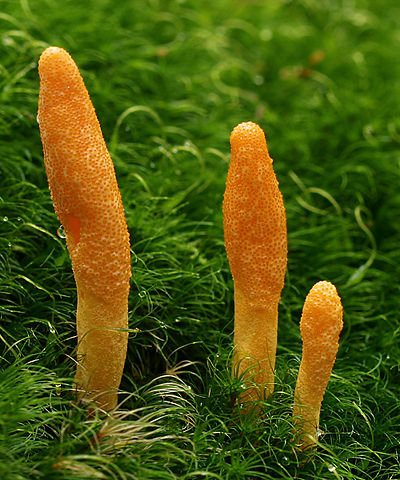When our immune system is working properly, we don’t even notice it. But when we have an under- or over-active immune system, we are at a greater risk of developing various conditions and infections.
If you are wondering how to boost your immune system, please understand that it doesn’t necessarily happen overnight. It’s a matter of strengthening your immune response with lifestyle changes (diet and exercise), have a restful sleep and the use of immune-boosting antimicrobial and antiviral herbs.
What is the Immune System?
The immune system has a vital role: It protects your body from harmful substances, germs and cell changes that could make you ill. It is made up of various organs, cells and proteins.
The immune system includes white blood cells and organs and tissues of the lymph system, such as the thymus, spleen, tonsils, lymph nodes, lymph vessels, and bone marrow.

Immune system can distinguish our tissue from foreign tissue — self from non-self. Dead and faulty cells are also recognized and cleared away by the immune system.
Here’s a breakdown of the differences:
- “Non-self” substances are called antigens, which includes the proteins on the surfaces of bacteria, fungi and viruses. Cells of the immune system detect the presence of antigens and work to defend themselves.
- “Self” substances are proteins on the surface of our own cells. Normally, the immune system has already learned at an earlier stage to identify these cells proteins as “self,” but when it identifies its own body as “non-self,” and fights it, this is called an autoimmune reaction.
Immune System Diseases
Before learning exactly how to boost your immune system, first understand that most immune disorders result from either an excessive immune response or an autoimmune attack. Disorders of the immune system include:
Allergies and Asthma: Allergies are an immune-mediated inflammatory response to normally harmless environmental substances known as allergens. The body overreacts to an allergen, causing an immune reaction and allergy symptoms. This can result in one or more allergic diseases such as asthma, allergic rhinitis, atopic dermatitis and food allergies.
Immune Deficiency Diseases: An immune deficiency disease is when the immune system is missing one or more of its parts, and it reacts too slowly to a threat. Immune deficiency conditions, like HIV/AIDS and drug-induced immune deficiency, are due to a severe impairment of the immune system, which leads to infections that are sometimes life-threatening.
Autoimmune Diseases: Autoimmune diseases cause your immune system to attack your own body’s cells and tissues in response to an unknown trigger. Examples of autoimmune diseases include rheumatoid arthritis, lupus, inflammatory bowel disease, multiple sclerosis and type 1 diabetes. They are on the rise and sometimes are connected with an increased vaccination given at a very early age of children. This is debatable.
Boosting your immune system with natural means
Foods
Bone Broth
Bone broth supports immune function by promoting the health of your gut and reducing inflammation caused by leaky gut syndrome. The collagen and amino acids (proline, glutamine and arginine) found in bone broth help to seal openings in the gut lining and support its integrity.
We know that gut health plays a major role in immune function, so consuming bone broth works as an excellent immune system booster food.
Foods high in Vitamin C – like citrus fruits and red bell peppers, improve the health of your immune system by providing anti-inflammatory and antioxidant properties.
Studies display that getting enough vitamin C (along with zinc) in your diet may help to reduce the symptoms of respiratory infections and shorten the duration of illnesses like the common cold and bronchitis.

The best vitamin C foods to add for a strong immune system include:
- citrus fruits, including orange, lemon, kiwi and grapefruit
- guava
- strawberries
- green and red bell pepper
- pineapple
- mango
- honeydew
- parsley
Foods high in Beta-Carotene
Beta-carotene has powerful antioxidant activity, allowing it to help reduce inflammation and fight oxidative stress. Instead of taking beta-carotene supplements, researchers propose that beta-carotene can promote health when taken at dietary levels, by eating foods rich in the carotenoid.
The richest sources of beta-carotene are yellow, orange and red fruits and veggies, and leafy greens. Adding the following foods to your diet can help promote a strong immune system:
- red bell peppers
- carrot juice
- spinach
- sweet potato
- pumpkin
- apricot
- kale
- collard greens
Herbs
The list is long here and complicated. I will just provide a few here with the part of the plant used for this:
Astragalus (Root); St.John’s Wort (flowers) ; Wild indigo (root and leaves); Commiphora myrhh (gum resin); Larch (bark); Larrea tridentate (aerial parts); Osha (root); Indian balsam (root); Green sorrel (leaf); Pau D’arco (bark-heartwood-leaves); Old man’s beard (whole plant);

Mushrooms
When it comes to immune support, mushrooms have stood the test of time. They gave strength to Ancient Greek warriors, were the “food of the gods” for Romans, and are treasured as an “elixir of life” in traditional Chinese culture.
Mushrooms have an excellent nutrient profile and are recognized for over 100 medicinal functions, including impressive immune-enhancing and antioxidant properties. The popularity of mushrooms is growing amongst scientists and health enthusiasts as research continues to unveil their numerous bioactive compounds.

One of the biggest reasons for mushrooms’ immune-boosting properties is a group of compounds called beta glucans. These are the main types of polysaccharides (long-chain carbohydrates) found in mushrooms, making up half the mass in their cell walls. Beta glucans are not made by our bodies, but they can trigger both our innate and adaptive immune responses. They do this by binding to and activating the receptors found on white blood cells, including macrophages, neutrophils, natural killer cells, and cytotoxic T-cells, which help the body respond to infection.
Here are some of the best mushrooms to support your immune system:
Reishi
The “mushroom of immortality,” most commonly known as reishi (Ganoderma lucidum), has been used in traditional Chinese medicine for thousands of years to improve health and longevity. It is one of the most studied and widely used of all the medicinal mushrooms and a popular remedy for chronic illness in Asia. Over 30 years of clinical research has confirmed that reishi both activates and modulates the immune system. It also works with the body’s immune system cells to protect against oxidative damage and can be safely used for long periods of time.
Maitake
Maitake (Grifolia frondosa) means “dancing mushroom” in Japanese. As an adaptogen, maitake increases the body’s resistance to stress. It is known to modulate the immune system and increase the activity of immune system cells, such as neutrophils and natural killer cells.
Shiitake
Shiitake (Lentinus edodes) is one of the most popular edible mushrooms with significant health benefits. It has been used for hundreds of years to relieve symptoms of the common cold and has both antioxidant and antimicrobial activities. Current research is focused on shiitake’s benefits for suppressed immune function, allergies, cardiovascular health, recurrent colds and flu, as well as numerous chronic health conditions.
Cordyceps
The “caterpillar fungus” called cordyceps (Cordyceps sinensis) is found at high altitudes in the Himalayan mountains. Traditional healers use this unique fungus that lives on certain caterpillars, for its adaptogenic properties that enhance vigour and vitality, and reduce fatigue. Preliminary evidence also shows that cordyceps has a protective effect on the body’s organs and a sedative effect on the central nervous system.

Chaga
Chaga (Inonotus obliquus) is a slow-growing fungus found in cold habitats. It has been used as a folk medicine in Russia and Eastern Europe for over 400 years where it is recognized for its superior antioxidant activity and ability to combat oxidative stress. Chaga contains a wide variety of phenolic compounds believed to stimulate the immune system.
Lion’s mane
Lion’s mane (Hericium erinaceus) is an edible mushroom with a long history of use in Chinese medicine for fatigue, infections and general debility. It is also recognized for improving mood and brain function.
Supplements
Probiotics
Because leaky gut is a major cause of food sensitivities, autoimmune disease and immune imbalance or a weakened immune system, it’s important to consume probiotic foods and supplements.
Probiotics are good bacteria that help you digest nutrients that boost the detoxification of your colon and support your immune system. Supplementation of probiotics in infancy could help prevent immune-mediated diseases in childhood by improving the gut mucosal immune system and increasing the number of immunoglobulin cells and cytokine-producing cells in the intestines.

Vitamin D
Vitamin D can modulate the innate and adaptive immune responses and a vitamin D deficiency is associated with increased autoimmunity as well as an increased susceptibility to infection.
Research proves that vitamin D works to maintain tolerance and promote protective immunity. There have been multiple cross-sectional studies that associate lower levels of vitamin D with increased infection.
Zinc
Zinc supplements are often used as an over-the-counter remedy for fighting colds and other illnesses. It may help to reduce cold-related symptoms and shorten the duration of the common cold.
Research evaluating the efficacy of zinc shows that it can interfere with a molecular process that causes bacteria buildup in the nasal passages.
And finally, improve your Sleep!
When you aren’t getting enough sleep, your immune system won’t be able to function properly. In fact, research analyzing the vulnerability of sleep-deprived adults found that those who slept less than six hours a night were more than four times likely to get a cold than adults who slept more than seven hours.
Sleep is an essential component of building up the body’s immunity and making sure it is operating at full capacity when healthy. Studies have shown that sleep disturbance and inadequate sleep can leave one’s immune system more susceptible to infectious illnesses like the common cold.
To reduce your chances of catching a bug, make sure you’re getting at least seven hours of sleep every night.
